Joyce T. Strand's Blog, page 8
March 21, 2016
WHAT THE EXPERTS SAY: W. Lawrence, Author
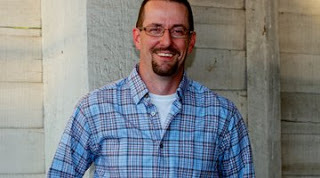 W. Lawrence, Author
W. Lawrence, AuthorSYNCING FORWARDReviewers describe W. Lawrence’s SYNCING FORWARD as a unique and creative science fiction story. Lawrence elaborates that his SciFi novel clarifies every step of the way to make it plausible. His protagonist is an everyman who readers can relate to easily. And the story is more than SciFi. It’s also about family, love, suicide, terrorism, and ethics.
He is currently working on his next novel, One Way Window, due to be released June 2016--a lighter, humorous adventure in which a house owner in North Carolina discovers a window that looks back 90 years. When he’s not writing, Lawrence enjoys his wife and two daughters—although he tries to go running, shooting targets, and playing games in between fixing toilets and helping his daughters with homework.
Don't miss the giveaway opportunity at the end of the interview.
Q: Reviewers applaud SYNCING FORWARD as a unique and creative science fiction story. What are the key attributes or elements of the genre of science fiction, and what makes your story unique?
W. Lawrence: Defining science fiction is not as easy as we may think. Is The Time Traveler’s Wife science fiction? Travel through time as a concept is SciFi, but I think most readers prefer there be an explanation for the time travel for it to be classified as such.
There is a surreal aspect to my protagonist Martin James’ journey, yet every step forward he takes is grounded in a plausible expectation of the future. We see the movies from 30 years ago and are disappointed in the lack of flying cars and interstellar travel. But why is that so? Because money drives everything technological. Shrinking our phones, flattening our TVs, lengthening our lives. These are tangible products and every step Martin takes to the future builds on the previous one. While the end of the book may seem incredibly alien, the path to get there becomes one that has you nodding your head saying, “Yeah, I can totally see that happening.”
Q: Why do readers care about your protagonist? How does he engage them? What will cause science fiction readers to stop caring about a protagonist?
W. Lawrence: Martin James is an everyman. He struggles to pay his bills, he fights with his wife but loves her dearly, his children are his life. Sure, he has some talents, but Martin James is an utterly relatable character, which draws the reader into his story. Martin also internally dialogues frequently due to his condition, which is akin to Johnny’s Got a Gun.
Q: Given that your story ventures into a dystopian future, how do you assure its plausibility, or “grounded in reality” as one reviewer claims? Is believability important to science fiction fans?
W. Lawrence: SciFi fans are more sophisticated than ever before, so I made sure I not only researched aspects of politics, demographics, and technology, but I logically played it out in my head. If it didn’t pass the smell test, I tossed it. I’m no prognosticator, but I wanted the reader to be able to take small steps instead of giant leaps.
Q: Does the concept of villain vs hero apply? Is your protagonist a hero? What makes an effective villain?
W. Lawrence: The hero’s journey is certainly there for the taking, but there are large plot points which hinge upon what a villain is defined as, so I think I will leave that question dangling for now.
Q: Reviewers also say that SYNCING FORWARD is thought-provoking. Did you write it strictly to entertain readers or did you embed some messages in the story? What do you want readers to take away from your book?
W. Lawrence: There are many messages in SYNCING FORWARD. Is it a science fiction story? Yes. Is it a story about family and loss and tragedy? Yes. Suicide, terrorism, ethics within the scientific community… All of these are layered on rather thick. It isn’t a light book.
Q: Did your background as a corporate investigator influence your writing? Did you conceive of the plot while doing your job?
W. Lawrence: While my background helped me create a starting point for the main character, the plot was driven by a dream I had several years ago. This story is quite true to that lucid dream.
Q: How do you create a “page-turner,” as many reviewers claim? What are the elements of suspense you use?
W. Lawrence: I used a lot of my own fears to make readers uncomfortable. Hospitals, enclosed places, needles. Those things make me squirm. But other deeper fears are present – fear of losing my wife, my kids, of being alone. I believe readers turn the page to escape that discomfort, even if relief comes with the knowledge that something awful waits around the corner.
Q: Did you use humor to create any of your characters or the plot? How important do you consider humor as a contribution to telling your story?
W. Lawrence: Humor is not a big element in SYNCING FORWARD. There are tiny moments that act as tension breakers, but the personal drama and world events are rather heavy. I think humor is important, just not here.
Q: What’s next?
W. Lawrence: One Way Window. It’s a twisty adventure involving a North Carolina house in which the owner finds a window that looks back in time ninety years. Moonshiners, ghost stories, and time travel. This book is much lighter, has a lot of humor in it, and will be a fun tale to zip through. Don’t mind me though if I twist your brain along the way. Look for June 2016 as a publishing date.
Q: Tell us about W. Lawrence. What do you like to do when you’re not writing or working?
W. Lawrence: Hmm, what I like to do is go running while listening to DLZ’s TV on the Radio, shooting at targets at the gun range, and playing games (all sorts of games). What I end up doing though is coming home late from work, fixing our toilet, and helping kids with homework.
About W. Lawrence
W Lawrence was born in San Francisco, California, and moved two dozen times before settling in Pennsylvania with his extraordinarily patient wife and two precocious daughters. He wants a boy dog. He works in the world of corporate security as an investigator and professional interviewer/interrogator.
Lawrence is obsessed with 5K zombie runs, comes home empty-handed from hunting turkeys, and loves non-fiction books about pirates. He has no problem reconciling that his two favorite shows are Downton Abbey and The Walking Dead.
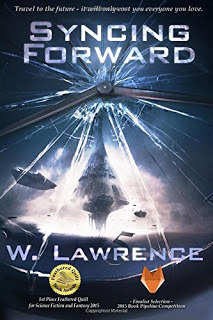 About SYNCING FORWARD
About SYNCING FORWARD1st Place for 2015 Feathered Quill Award, Science Fiction/Fantasy
Finalist in the 2014 Book Pipeline Contest
--Travel to the future - it will only cost you everyone you love.--
Attacked and injected with a drug which slows his metabolism to a fraction of normal, Martin James becomes an unwilling time traveler who hurtles through the years. His children grow up, his wife grows older, and his only hope is finding the people who injected him in the first place- not an easy task when one day for Martin lasts four years. And while Martin James strives to find a cure before everyone he loves is gone, others are uncertain if his journey can be stopped at all.
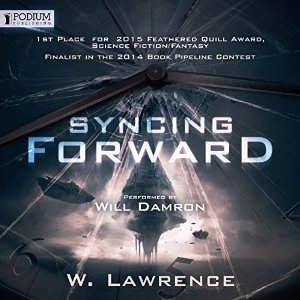 W. Lawrence weaves a dystopian future filled with the best and worst of humanity, highlights the blessings and curses of technology, and pushes the limits of faith and hopelessness. Above all, SYNCING FORWARD is a tale of one man's love for his family, and their devotion to saving him from being lost forever.
W. Lawrence weaves a dystopian future filled with the best and worst of humanity, highlights the blessings and curses of technology, and pushes the limits of faith and hopelessness. Above all, SYNCING FORWARD is a tale of one man's love for his family, and their devotion to saving him from being lost forever.Purchase links
Amazon - KindleAmazon - PaperbackAudibleB&N NookKoboiBooksOakleaf BooksBook DepositoryKOBOHalf.comAlibrisGoogle Play
Author Links
Website / Twitter / Facebook / Goodreads
Enter the giveaway

http://www.rafflecopter.com/rafl/display/50c8794d1/a Rafflecopter giveaway
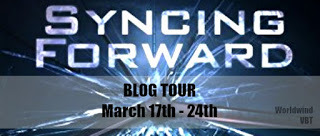
Brought to you by Worldwind Virtual Book Tours
Published on March 21, 2016 21:42
March 2, 2016
WHAT THE EXPERTS SAY: Tom Stacey, Author
 Tom Stacey, Author
Tom Stacey, AuthorEXILE, Book#1 Bloodforge SeriesReviewers describe Tom Stacey’s EXILE, #1 of the Bloodforge Series, as “the very definition of epic fantasy” with "insanely vivid characters” and the feel of “one of the richer, more complex computer games.” Stacey defines an epic fantasy as a story whose characters “deal with themes beyond that of individuals.” He claims that his characters are "flawed." And he writes strictly "to tell a good story."
When he’ s not writing, Stacey is a video producer in London. He’s working on the second book in the Bloodforce Series which he plans to finish by the end of 2016. He’s also writing a short story/novella and another novel. For fun, he likes to read, go to the movies, and support his favorite UK soccer team.
Don’t miss his excerpt from EXILE following the interview.
Q: EXILE has been described by a reviewer as “the very definition of epic fantasy.” How would you define an epic fantasy? Do you agree that EXILE is an epic fantasy? Why or why not?
Tom Stacey: I think an epic fantasy is something that deals with themes beyond that of individuals. That is not to say that it can’t tell the story from the perspective of individuals, but each has to be a character involved in grand themes, in events that effect nations and entire peoples. In that respect, I do agree that EXILE is an epic fantasy. It tells the story of an invasion that turns the known world on its head, but it tells it from the viewpoints of a few people. Some are directly involved, some merely on the periphery.
Q: The setting for EXILE was described as “majestically sweeping landscape. To create the world for EXILE, how did you make it “majestically sweeping?” Did you follow any world-building rules?
Tom Stacey: I wouldn’t say I followed any rules. I don’t really believe in rules when it comes to writing, short of the rules of language. I just try to be as descriptive as possible without being indulgent, and try to make things visceral and real. I want my readers to feel like they can touch the weathered stone of a ruined watchtower, smell the damp grass on the coastal plains, feel the bite of the wind on the Dalvossi Steppe. Reading fiction is all about escapism and I hope I have delivered that.
Q: How relevant is credibility for readers of fantasy? How do you create a believable story? What will annoy a fantasy reader and make them stop reading a story?
Tom Stacey: I think fantasy is a bit of a saturated genre. I know from being a fantasy fan myself that clichés annoy me. I am also not a fan of characters that are seemingly indestructible or godlike. The fantasy I like needs to be grounded in reality, even if it does have elements of magic. I think this is why something like Game of Thrones has seen such success – it never strays from feeling like a story of Medieval Europe, despite the more typical fantasy elements. I hope I replicated that sense of authenticity, even a little bit.
Q: Your characters are described as “solid and carry the story with power.” Are your characters perfect or do they have flaws? What makes powerful characters that will engage a reader’s interest?
Tom Stacey: I would say my characters are completely flawed. Perfect characters are boring, because nobody is perfect in the real world. Who can relate to a flawless human being? Loster is a coward (or at least he thinks he is), Beccorban has committed atrocious acts of violence and brutality, Riella is full of shame for the way she made a living. All of my characters have colored pasts that influence their decisions and that’s why I love to write them.
Q: How important is the concept of heroes vs villains in EXILE? How would you define a hero? Do you need a villain to have a hero? How do you create an effective villain?
Tom Stacey: It’s one of my favorite themes in any book. We all love a good villain and I am no different. In terms of EXILE heroes vs villains probably takes a back seat to good vs evil, but then a lot of the battles in EXILE are internal ones. Nevertheless my heroes protect the weak, and have their own moral code. Whether that aligns with everyone else’s idea of good is a different conversation, but the point is that my heroes mean well. For the villains however, I feel that fear is an important factor, as well as power. Villains need to have a hold over the heroes, whether it is strength, or intelligence, or support. The villains in Exile have that in abundance.
Q: Did you write EXILE purely for entertainment? And/or did you embed any messages for your readers?
Tom Stacey: In short, yes and then no. I wrote Exile to tell a good story, like something you might hear around a campfire. I don’t think there are any hard-coded messages in the book, but I have had a lot of people interpret things in different ways. I find it really flattering that people read into my work and find things I never consciously intended. Ultimately Exile is a story about dealing with guilt and moving on, nothing more.
Q: How did you conceive of the story for EXILE? What gave you the idea?
Tom Stacey: I wrote several short stories and then realized that they could all potentially exist in the same world. I bridged them together and then the story sort of grew a life of its own and went from there. The part of the story that speaks to me the strongest is the ending, which is already in my head, but does not feature in EXILE . At the moment, I don’t think I will get to said ending in anything less than three books.
Q: What makes EXILE “absorbing, dynamic, and gripping”? How do you create suspense and entice readers to turn the page?
Tom Stacey: I try to make every chapter end with the promise of more to follow. Also, although I like to be descriptive, sometimes I find that things are more effective if you hold information back from the reader and keep them guessing. Don’t talk of a monster, talk of a shadow, don’t show a demon entering the room, just make things colder, snuff out a few candles. In general, suggestion is much more suspenseful and ultimately rewarding.
Q: What’s next? Since this is the first of a series when can we expect the next one?
Tom Stacey: I am aiming to finish the second in the Bloodforge Series by the end of the year, work/life balance permitting. Otherwise I am writing a short story/novella called Tomb about archaeologists uncovering something sinister, and a standalone novel called Flotsam about a man who gets stuck on an island by himself.
Q: Tell us about Tom Stacey. What do you like to do when you’re not writing?
Tom Stacey: I’m not all that interesting really! I’m a video producer in London, but when I’m not working or writing, I’m reading, going to the movies, or supporting my beloved West Ham (a soccer team in the UK).
About Tom Stacey by Tom Stacey
“I am from the wild lands of Essex, and have been all my life.
“I've always been a student of history. My first history teacher at secondary school taught me that there are only five letters in the word history that matter: 'story.' Ever since then I've been hooked.
“I'm somebody who loves to read. I love Bernard Cornwell's earlier works like the first Sharpe novels and the Warlord Chronicles. I've experienced the can't-put-down quality of Wilbur Smith's Courtney novels. I'm a big Conn Iggulden fan (Emperor and Conqueror series) and love A Song of Ice and Fire - who doesn't?
“Arguably my favorite author is the late David Gemmell. His simple historical fantasies really struck a chord with me when I was younger, and encouraged me to write my own stories.
“I like stories about heroes, or things that make you scared to turn the page, stories that leave you feeling empty or that you've left friends behind in the epilogue. A writer is someone who can reach out from a page of prose and grab your attention and not let go until your heart is beating faster or aching with loss.
“If my own stories can make even one person feel something like that then I will consider myself a success. If they don't, I'm going to keep writing them anyway, so you might as well read one of them!”
About EXILE
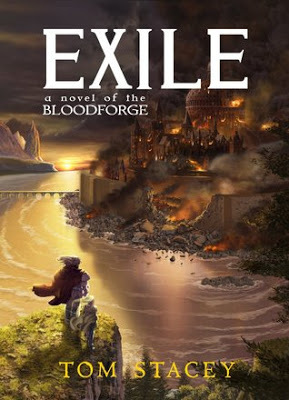 A novel of the Bloodforge
A novel of the Bloodforge A gripping tale of heroism and the darkness within
On the fringes of the Verian Empire, two small boys stumble upon a strange altar, buried in the heart of a mountain. There they awaken a horror unseen for generations, that will descend upon the realm of men while it is at its weakest. For Veria is a nation at war with itself, only recently recovered from a bloody rebellion, and the time of heroes has passed. The empire is in a state of chaos, and while its ruler, the Empron Illis, rids the land of his remaining enemies, unseen forces are gathering at the borders. However all eyes are turned inwards. The Empron is not a well man, and there are whispers among the common folk that his advisors are spies; demons that only wear the flesh of men.
Yet there is hope...
In the distant mountains, a forester who has buried his past learns that he has not been forgotten, and that his crimes have sought him out at last. But he is no simple woodsman. He is Beccorban the Helhammer, Scourge, Burner and the Death of Nations, and his fury is a terrible thing.
For when all the heroes are gone, Veria will turn to those it has forgotten, before all is lost.
Excerpt
Kiren leant in close to Huril, shielding himself from the biting wind. It seemed to be a living thing, screaming in his ears as its icy fingers searched for every gap and crevice. After burning down the small hut, Barin had ordered the men to huddle close. Only a few of the older men — about three of them — had brought furs. The rest sat frozen and miserable, every bit of exposed skin wrapped in whatever they could find. The Guide had disappeared an hour before, hissing something in Barin’s ear and then melting into the bushes like a shadow. It felt as if a weight had been lifted off of Kiren’s shoulders, but he did not know why.Dreng returned from his scout with a brace of winter hares. Whilst the others ransacked the hut, the wiry tracker skinned and prepared his catch, storing the still warm meat in his pack and scraping the skins clean. He sat now opposite Kiren with the white furs wrapped around his hands, each pelt still tinged pink with gore. At any other time Kiren's stomach would have lurched at the thought of touching the oily, recently dead flesh, but now he glared at Dreng with jealous eyes as his own hands threatened to turn blue.These few days in the mountains had been miserable. Now it seemed that they would all freeze to death, their mission a failure. They had been outfoxed by one old man who was probably somewhere warm and dry with a full belly. If this weather continued he would return home to eight living statues in compensation for the loss of his dwelling.Barin stood away from the group, leaning against a tree with his cloak wrapped around him. Kiren wasn't sure whether the Lommocel was dead or not. It was hard to look in any one place for longer than a moment yet he wasn’t about to get up and check. The snow was flying sideways and stung his cheeks with its force. Kiren wanted to close his eyes but every time he did so he felt incredibly tired. Before the storm struck, Barin had given them a short speech about staying awake. To fall asleep in this cold was death, he had said, and he tasked every man with keeping his neighbour alert. Nevertheless, it was hard to keep the mind active when all there was to do was sit and wait. Kiren turned his head and looked at the men around him. All were so covered in snow that their crimson armour was frozen and powdered white. In fact it was hard to tell them apart. “You still with me, boy?” Huril's gruff voice penetrated the fog of Kiren's thoughts.“Still here,” he said and Huril grunted in response. Kiren had never been this close to the old soldier. He smelt of tobacco and sweat. Strangely he found that comforting. It reminded him of a tavern; the smell of woodsmoke, cooking grease and packed humanity. Somewhere warm.He looked at the men around him one by one. Next to Huril there was Millar, the farmer's son turned recruit. Next to him sat Sarif Morn and then Shume and Dreng. Next to him was Grosh... was that Grosh? Yes, it must have been. Then... Shume. Kiren shook his head. He must have counted wrong. There was no mistaking that the figure to his left was Shume. He had been staring at the back and side of his face all day and knew every inch of that jowly expanse, even huddled as it was into a cloak. Who was the other figure, then? The Guide? No, he was far too broad to be the Guide. Besides, the Guide had left an hour ago. He had to have counted wrong.Kiren slowly turned his head and stared at the large man between Sarif Morn and Dreng. He was one of the few who had brought furs, although they were caked in frost and snow. He sat hunkered down, staring at the ground, his hands hidden inside the folds of… what was that? A bearskin? Kiren carefully counted the party in his head. Barin, Morn, Dreng... Huril, Grosh, Millar, himself and Shume. Eight men.But there were nine in this clearing.
Links
Amazon
Goodreads
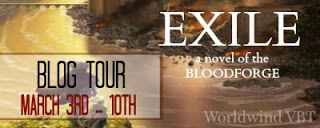
Published on March 02, 2016 19:32
February 24, 2016
WHAT THE EXPERTS SAY: Tom Reitze, Author
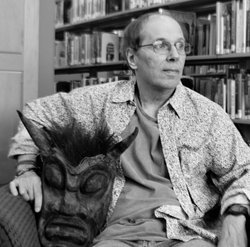 Tom Reitze, Author
Tom Reitze, AuthorDEKLYN
STORIES OF A DIFFERENT NATURE:
THE ANTHOLOGYTom Reitze, author of “Stories of a Different Nature,” returns to divulge more about his quirky self and his novella DEKLYN. Although the novella started out as a short story, “like beads on a string” it kept getting longer as new ideas about the world today intrigued him.
Reitze is a former electrical engineer, has a twenty-pound cat named Horus, and dislikes TV. But what’s most exciting is that his novel—a love story with “humor, silliness, adventure, a bit of the paranormal"—is being edited, and we can expect to see it within the next year. In the meantime, for fun, he enjoys building gadgets from spare parts, painting, and more writing.
Q: Why do you write paranormal, quirky stories like DEKLYN? Is this your favorite genre to read? What do you read besides paranormal?
Tom Reitze: Actually, I rarely read paranormal stories, though I like the subject matter quite a bit. I like to think of the possibilities that exist in a world we don’t fully understand, then try to put some of my ideas into writing. The paranormal is all around us. Often, significant things happen in our lives without explanation—events that should not occur but do. We have no explanation for them. Most of us have experienced such oddities, but we often brush them off because their existence upsets our sane, predicable world. There must be something to these events since so many people have confronted them. Like knowing someone is watching you from behind, and when you turn, someone is. Preposterous events well beyond feeling watched, things that can’t occur, often do. That’s where the mystery lies.
I like Tony Hillerman, rest his soul, and his style of writing. I read the most boring material you could imagine. Such as how the transistor was developed, what exists at the edges of the universe, how do geostationary satellites function, the development of the atom bomb, and ‘junk’ like that. I like to watch old presentations from NOVA, The History Channel, and National Geographic. I am always excited being enlightened about things I didn’t understand or never knew existed. I spend a lot of time trying to answer that ultimate question. How and why are we here?
The quirkiness? I guess it comes from me. I’m often disorganized, make up my own rules, and have a tendency to put together the jig-saw puzzle the way I like. Even if it doesn’t resemble anything close to the picture on the box. It drives my editor Dorothy nuts.
Q: DEKLYN is longer than other stories you’ve published. What drove you to make it longer than your short stories? Did you need more words to develop your characters or the plot?
Tom Reitze: DEKLYN turned out to be like beads on a string. One part added and another after that. I think of it as being a very disjointed but linear story. It wasn’t intended to be as long as it turned out, but ideas kept coming to me and were added as they developed. It turns out DEKLYN is somewhat of an ‘editorialized tale.’
Many of my ideas about our present world are included within the novella, along with some ‘metaphysical’ possibilities. Many of the problems that exist today, and have existed for some time, are presented, yet they never get addenda to. Child abuse, people lost and without hope, the crazy mass shootings that keep happening, cheating hypocritical leaders… they are all there. When will we decide these are things that need some consideration? I wanted to shine a light on these matters. The story has a strange construction, such that after you have finished with it, you may wonder how in the world it moved in so many diverse directions. I guess that’s its quirkiness. I like that. I think that is how my life has proceeded. Write what you know has always been an instruction to new authors. I would add to that, if you dare, write what you are. That is where I’m going next.
There are a number of very positive aspects of DEKLYN as well. It took a few words to get all of that in.
Q: How do you make readers care what happens to your characters? Are your characters clearly hero or villain?
Tom Reitze: I try to make the characters that play their respective roles in my stories interesting in different ways and to different degrees. If I am writing something that is emotionally connected to me, I try to get the reader to feel those emotions—to make the characters come alive for the reader as they are for me. I have a great empathy for Levon and Benny in my Christmas Eve story. Other times, the story is the story. The characters should be real and believable but perhaps I don’t spend as much time on them as I should in bringing them off the pages.
There are purely evil players in some of my stories. That’s because I believe some form of unredeemable evil walks on the face of this earth. Most of my characters are somewhere in-between corrupt and sufficient, but may tilt towards one side or another. That is the true nature of the human spirit. I’m not sure, but pretty much convinced, perfection is probably not achievable.
Q: Why do the Adirondacks appeal to you for settings? Do you find the hills or forests ominous or scary? I admit, the movie Deliverancecomes to mind when I think of backwoods in the mountains.
Tom Reitze: When I was very young our family vacationed in the Adirondacks a number of times (the name refers to ‘Tree Eaters,’ derived from the Mohawk language, but perhaps in a very indirect way). As a child I fell in love with the area immediately. Up to about five years ago, for about fifteen years, I rented a cabin in Speculator each autumn from the same family, for a two week stay each year.
The mountains and trees are beautiful. It is as peaceful there as any place you can imagine. But there is more to it than that. There is something mysterious about the place. Perhaps the spirits of the Native Americans who lived there years ago still roam the hills. Maybe there are other unknown spirits or forces that exist in the forest and mountains. Often as the sun would go down, I would stand at the edge of the lake and stare at the mountains on the other side. I could feel that something was there but was too elusive to see. I’m not sure what it is, but I feel it there, moreso than any place I have ever been, there is a living, mysterious, unknown force that exists there. And maybe has forever. Going there is a more spiritual experience for me than any I have ever come across within the walls of any religious institution.
Q: Do you write your stories just to entertain or do you like to embed a message or two?
Tom Reitze: Sometimes I write just to entertain. Let the truth be known, it’s not my favorite pastQ: What’s next? Will you publish the novel you’ve written?
Tom Reitze: I’ll give you a few hints. In perhaps a year, more or less, from now I will be releasing a full size novel, many times the size of DEKLYN. It was the first thing I wrote a number of years ago, and is by far the best piece of work I have ever done. Maybe ever will do. It is complete, but is still being edited. Look for it because I think if you read it you will not regret the time spent traversing its pages.
It is a love story. It contains a lot of humor and silliness, adventure, a bit of the paranormal, and a deep philosophical understanding of the world presented through the eyes of a young child. There is a host of characters, some with inane personalities and some with a profound understanding of how the real world works. And it comes packaged with a hectic surprise ending. Told by a young boy, who, by the time I finished writing it, I loved as if he were my own child. And still do.
Q: What do you like to do when you’re not writing?
Tom Reitze: Write. That’s what I spend most of my time doing. A lot of what I do goes nowhere so that chews up some time. Also, I have to keep records and I find that difficult and time consuming.
Having been an electrical engineer, and having a basement full of old electronic components, I spend time building gadgets of various kinds I design. I used to do some painting and art work. I’m not very good at it, but I think I made a few passable items. However, my hands are not as steady as they used to be, so that pastime may be beyond me. But I miss it and may give it a go one more time.
About Tom Reitze
Thomas Reitze, who much prefers Tom, worked for thirty years as an electrical technician then engineer for a Fortune 500 company. He produced designs used in numerous copying and printing machines. One of his designs ended up as a million seller, used in more than one million machines.
His love of doing design work sprouted from his need to be constantly creating; making something new that didn't exist before. He also dabbled in painting for a number of years, but sold very few of his finished productions. However, in the joy of creating he found great satisfaction, reaffirming that the act itself was its own reward.
After that, lying in bed one night, he had an idea for a book that might be interesting to write. He started on it, a process that took three years to complete. The book is finished but not edited, and may be released in a few years after it is "cleaned up." However, as often is the case for Tom, he has become sidetracked from that task and moved on to a new one. He decided to put to gather a collection of short stories instead. Once started, he found it hard to stop. He now holds a collection of around twenty (maybe more) completed stories and many more in the pipeline.
Tom lives alone with his twenty pound cat Horus. Over the years he has collected a lot of "junk" that is scattered around his house. From an actual (legal) piece of the moon, to a few Egyptian items, some going back to about one-thousand B.C., to numerous wood carved dragons, and to a Chinese opium scale from perhaps the mid eighteen-hundreds--it's all there and much more.
His favorite food is Chicken French, he enjoys music from the sixties and seventies, Native American flute music and what people refer to as boring new age music. He does not appreciate jazz. His favorite author is Tony Hillerman. He hates TV, doesn't have cable, and his only TV is a small analog color unit more than thirty years old, and an eleven inch black and white receiver that is older yet. He is not a fan of video games or movies, but is interested in documentaries about science, archaeology, and the mysterious past of ancient civilizations. He tries to, but never expects, that he will understand the duality of light, Einstein's theory of relativity, or the nature of dark matter and energy.
He spends most of his time writing and rewriting, then editing his work. Regardless of the outcome of that work, good or bad, as long as he has a keyboard in front of him he is happy.
Tom's favorite place, which he holds near and dear to him, is the Adirondack Mountains in New York, where he has vacationed many times. You will find the setting for many of his short stories in that location or a landscape that is similar.
Tom is not sure of the existence of a 'Great Spirit.' He ponders evidence for and against the Overriding Power. Some of his stories show that struggle. He hopes someday he will get a definitive answer.
His answer, though--not someone else's that he is expected to accept just because they say so.
About DEKLYN
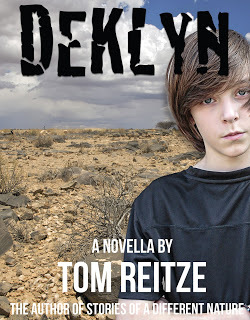 This "between the Stories of a Different Nature" novella started as just another story. Deklyn demanded that there was more than those few words to his tale. An escape from a life of beatings; a journey in a desolate desert; unimaginable powers; and forces beyond all understanding await you. Deklyn would like you to read it. At one time, he could have made you read it, but now it is your choice.
This "between the Stories of a Different Nature" novella started as just another story. Deklyn demanded that there was more than those few words to his tale. An escape from a life of beatings; a journey in a desolate desert; unimaginable powers; and forces beyond all understanding await you. Deklyn would like you to read it. At one time, he could have made you read it, but now it is your choice.Links
Amazon DEKLYN
Stories of a Different Nature:DATE WITH A CHAIR Book 1BERNICE'S BONES Book 2 PEJITO Book 3ZENZANTHIUM Book 4MAURICE BERRLY Book 5STORIES OF A DIFFERENT NATURE: THE ANTHOLOGY
Twitter - https://twitter.com/tomwritez
Published on February 24, 2016 19:03
February 22, 2016
WHAT THE EXPERTS SAY: Shannon DeConinck, Author
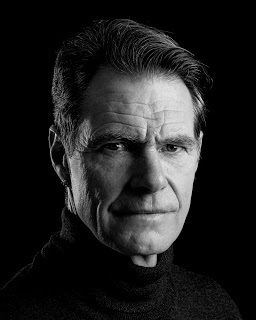 Shannon DeConinck, Author
Shannon DeConinck, AuthorTHE IDIOT MESSIAHShannon DeConinck brings us a unique paranormal story, THE IDIOT MESSIAH, described by one reviewer as “LA drug dealers meet Hindu mysticism.” He defines paranormal as perhaps a sixth sense that our normal senses just don’t happen to pick up--events that can't be explained by science or logic. He uses his experiences as a world-wide traveller to drive his plot from Los Angeles to London and South East England, then to Delhi and the Himalayan foothills.
DeConinck did not know what he planned to write when he started his novel—he just let the story "take over." He is currently working on a new unrelated novel titled “Seven More Interesting Ways To Die Than Cancer,” with a planned release for late 2016.
Don’t miss the excerpt from THE IDIOT MESSIAH at the end of the interview.
Q: How did you conceive of the concept for THE IDIOT MESSIAH described by one reviewer as “LA drug dealers meet Hindu mysticism” and another as a book that would make “a great Tarantino movie”? Was this a story you have long wanted to tell? Did it come to you in a dream?
Shannon DeConinck: To tell the truth, I didn’t conceive of the concept! I started writing the story with very little idea of where it would lead. I wrote the opening scene, and followed the thread, holding the reins very lightly and letting it build its own momentum.
To me, the true magic of writing fiction happens when the story takes over, and the author is almost a tool for it to be expressed. This may sound strange, but the story becomes a living entity in its own right. The most rewarding moments are when I don’t really know what’s going to happen next, but the words that appear on the page surprise and delight me. These are the moments of pure fluidity; other times it requires more effort, and this is when some structure is necessary, but I try to keep it as loose and open as possible.
Of course the content of the story, the settings and characters are drawn from my own experience and from subjects that interest me, but I must confess, when I started I had no real idea of where it would take me. In this way writing is much like life!
Q: Why do readers care what happens to your protagonist Carlos? Is he based on you or anyone you know?
Shannon DeConinck: Well, I hope that Carlos is someone who people can identify with, that he’s real and human enough to build a relationship with. I deliberately introduce him as someone who is not easy to like, certainly not a ‘Good Guy’, not evil, but a bit of an idiot.
One of the major themes of the book is his evolution from a self-obsessed, egotistic hedonist, to a person of greater awareness and compassion. This transformation comes about slowly through the terrible suffering and severe beating that life serves up for him, along with the guidance of a cosmic guardian, or seraph, who has taken a particular, and somewhat vested, interest in him.
During the unfolding of the plot the reader is slowly introduced to the inner workings of the protagonist: his insecurities, his hopes and his fears, and the reasons that he has became the person he is. “Is he based on anyone I know?” Carlos is entirely fictional, though I must admit there could be autobiographical elements involved!
Q How important is the concept of villain versus hero to your story? Would you consider your protagonist, Carlos, to be a hero? What makes an effective villain?
Shannon DeConinck: Carlos is very much the antihero, especially in the first chapters, he shows no heroic attributes, to the contrary he’s cowardly and self-serving.
The theme to which the story is set is definitely the struggle of light and dark forces, in which Carlos has unwittingly become a major player, and despite his own foolishness, becomes a force for the light. The role of villain is played by a character who is introduced as a being of light; a seraph, or cosmic guardian, who is drawn to the dark and uses the powers with which it is endowed for destruction and the promotion of chaos and suffering.
‘What makes an effective villain?’ I think unpredictability in the characters of both villain and hero is important, to step outside the usual boundaries of these stereotypes, to surprise the reader.
Q: Reviewers describe THE IDIOT MESSIAH as a page turner. How do you create suspense?
Shannon DeConinck: The story picks up momentum as the unfortunate protagonist stumbles from one appalling misfortune to the next. The reader is sucked into the vortex of Carlos’s life, and into sharing the experience of his tribulations, which are relieved, fortunately, by their comically dark portrayal. It’s a fast-paced roller coaster of a story, which keeps readers on the edge of their seat, whilst unexpected twists in the plot and hidden motives keep their attention.
Q: How do you create credibility for your paranormal story? What will make fans of the genre stop reading?
Shannon DeConinck: A good question: how can the paranormal be made credible? First of all, this is not a story about teenage vampires or werewolves! By the paranormal I mean events that exist outside of normal experience or scientific explanation. The idea is introduced early in the book that there is a lot going on in the universe which we are not privy to, things that our five physical senses are unequipped to pick up, or our minds accustomed to dealing with, as one of my characters; a mysterious LA taxi driver points out:
“What I mean is all we got is these five senses, these lil’ old five senses, it ain’t a lot, but it’s all we got to tell us what’s going on. Well, just suppose there’s a whole lot going on that these five senses don’t pick up, you know when people talk about the sixth sense, maybe that’s just a glimpse of the rest of the world.”
So in this sense I’m happy to extrapolate that what is known as “the paranormal” can credibly exist, if we accept that our perception of the universe is limited, in fact would it not be egotistic and small-minded to presume that it doesn’t?
Q: Reviewers also say THE IDIOT MESSIAH is entertaining and that it contains “some very thought provoking passages.” Besides writing to entertain, did you embed any key messages for your readers to take away?
Shannon DeConinck: I certainly didn’t set out with the intention of conveying any message, or influencing the opinions of the reader in any way. My primary intention as an author is to entertain, but if the story is found to be thought provoking, I have no argument with that. There is undeniably an esoteric aspect to the book, which has more to do with the subjects I find interesting, rather than promoting a certain idea or philosophy. The questions of what we are doing here, what happens when you die, and is there any reason for it all, have always fascinated me, and of course, we write about what we find fascinating. The notion that I am in a position to enlighten, instruct or somehow influence the reader is not part of my agenda as a writer of fiction, though anyone is free to read whatever they want into it!
Q: Did you use setting to help drive the plot of your story? How?
Shannon DeConinck: The story starts in Los Angeles California then continues in London and South East England, before moving on to Delhi and the Himalayan foothills. These are all places in which I have spent enough time to get to know, and to a point, understand. I think the ability to describe a setting from first hand experience is important, not only physically and geographically, but to imbibe the feeling or the ‘vibe’ of a location. This can give much more authenticity than just having read or heard about it. There’s nothing like personal experience to make a place, situation or character come alive.
Q: Without “spoiling” your plot, can you explain the title THE IDIOT MESSIAH? Does this refer to your protagonist, Carlos?
Shannon DeConinck: Oh yes, Carlos Delgado is every part the Idiot Messiah. He is the unlikely and unwitting redeemer of all that we know and value. To say any more would be giving the plot away!
Q: What’s next?
Shannon DeConinck: I am currently working on a completely unrelated novel called Seven More Interesting Ways To Die Than Cancer. This is due to be released later this year.
About Shannon DeConinck
Shannon DeConinck was born in Singapore, quite a long time ago, grew up in Brighton, England and started travelling at age sixteen. For the next fifteen years he lived in the USA, Australia, India and Europe. A curious nature and a love of adventure provided the impetus to keep seeking new environments and stimuli. During this time he worked on a fishing trawler in Massachusetts, as a motorcycle courier in Australia and as a surfing instructor in Spain. He also spent some years in India where amongst other things he lived on an ashram and travelled with the holy men of the Himalayas. In his thirties he returned to England and studied Environmental and Third World studies, graduating with BA hons, after which he worked with an environmental NGO in North India. Since then he has lived mostly on the Atlantic coast of Andalucia, or on a boat somewhere. THE IDIOT MESSIAH is his first novel, and he is currently working on his second.
About THE IDIOT MESSIAH
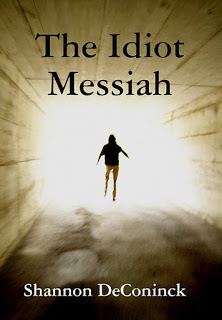 Carlos Delgado suspects he is dead, or is it that he is going insane? Since recovering from a near-fatal accident in Los Angeles, his life is no longer governed by the norms of reality. Trying to resume his life as a small-time crook, he is visited by long dead relatives and plagued by supernatural phenomena, pushing him to the edge of a breakdown. Desperate to escape the spectre of his own regrettable past and regain his sanity, he is coerced into a disastrous drug run which takes him from his native California to the UK.
Carlos Delgado suspects he is dead, or is it that he is going insane? Since recovering from a near-fatal accident in Los Angeles, his life is no longer governed by the norms of reality. Trying to resume his life as a small-time crook, he is visited by long dead relatives and plagued by supernatural phenomena, pushing him to the edge of a breakdown. Desperate to escape the spectre of his own regrettable past and regain his sanity, he is coerced into a disastrous drug run which takes him from his native California to the UK.Unbeknown to Carlos, he is the subject of a wager between two Seraphim, and is in fact the chosen one, on whose shoulders rests the fate of the human race. Carlos, who is neither religious nor conscientious, but who has a dogmatic ability for denial, finds himself on the run from both the law and his criminal past in an ever more volatile world. After being shot at point-blank range and run over by a truck, both of which he survives unscathed, he is sectioned in a mental institution where he is subjected to a horrific trial at the hands of the seraph Lucifractophones.
He escapes from the institution, and crosses England on foot, eventually finding sanctuary in Brixton with the benevolent seraph Meselophones, who is masquerading as a Rastafarian. These experiences cause a psychological and moral shift in Carlos, who under the guidance of the Rastafarian, begins to question the nature of life and reality. During his stay in Brixton he is tracked down by his former associates; a pair of vicious LA gangsters, whose attempt to kill him backfires, but encourages him to leave for India.
In Delhi he befriends some street children, who rescue him when he is held captive by African drug dealers. Guided by his intuition and the covert influence of the seraphim, he finds himself on a pilgrimage through the foothills of the Himalayas. Staying at ashrams and temples, travelling with holy men and mystics, this outer journey reflects an inner process of self-discovery.
When taken to see an old blind woman, who is a powerful oracle, he gains some insight into the powers controlling his destiny. He is deeply humbled by her wisdom and for the first time is able to step beyond the limits of his own arrogance and pride, preparing him for the ultimate test.
At Gangotri, the source of the river Ganga, Carlos is caught in the showdown between light and dark forces, represented by the two seraphim. He is forced to face his guilt over his teenage affair with his half sibling and her resulting death, and unearths the truth about his relationship with his parents. Will he be courageous enough to face his inner demons, overcome the spectre of his past, and in doing so find redemption, not only for himself, but for all of humanity?
EXCERPT
Throughout the evening Carlos remained silent, staring into the fire, conscious only of his condition of ignorance in comparison to those he traveled with: The Chosen Ones, the mala bearers, they were all here because of their merit. They had all been prepared or undergone years of training in spiritual or esoteric matters to earn their positions. Who was he? A small time criminal, a self serving egotistic fool, a spiritual hitch-hiker hoping to be shown the answers, at the best a freeloader. His sense of inadequacy opened up within him like a dark cold cave and he sat peering into its depths. After some time Carlos was shaken from his bleak reverie by the sensation of a hand on his shoulder, he looked up to see the face of the old woman close to his, her marble white eyes staring blindly, but somehow piercingly into his own. ‘Carlos, dear brother.’ Her voice was quiet, cracked with age but brimming with a tenderness in total contrast with her prior aloofness. ‘You are our most honored guest, it is you who have brought us all here together. We are all companions on this mysterious journey, none higher nor lower than the other.’ He felt, without doubt, the compassion the old woman held for him, the gentle presence of her hand on his arm transmitted reassurance. ‘I see that you are far from the world you know, I sense your confusion and your pain, we must all help each other, we must all help the world.’ Her face was close to his, framed by a tangle of grizzled gray hair, haggard and wizened almost to the point of grotesqueness, but luminous with a subtle light Unrolling his bedding and lying down, he watched the flames flicker and the sparks dance and spiral up into the night sky. Knowing that tomorrow was the end of their journey, and having no idea what to expect, he felt strangely unconcerned, the simplicity of the moment was enough, let tomorrow bring what it may. Shiv came over to where he lay, and produced a lump of jaggari: raw cane sugar, from a grubby cloth, and divided it between them. Not a word was spoken, but there was an easy and tangible companionship as he smiled his thanks. It dawned upon him that he now understood what it was to go on a pilgrimage, it was not the final destination, but the journey that counted. Inside, he felt empty, but not as if anything was missing, he felt empty but full of peace, somehow it was true; he had been purified. Carlos drifted into sleep to the gentle and mysterious sound of the chanting sadhus, the stars brilliant above, and the glow of the embers reflected in the faces of his companions. Perhaps for the first time, he felt unconditionally accepted for who he was, by those around him, and by himself.
LinksAmazon (Kindle and book) Amazon UK
Website
Twitter @shannondeconin1
Published on February 22, 2016 21:01
February 8, 2016
CHECK IT OUT: Cover Reveal by Sylvia Stein, Author
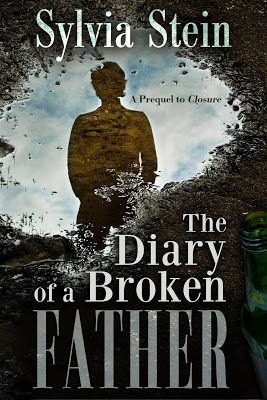
Sylvia Stein reveals the cover of her upcoming book, THE DIARY OF A BROKEN FATHER, a prequel to her novella CLOSURE, published July 31, 2014. The new novella will be released in June 2016. Cover designed by the "awesome" Natasha Brown.
Stein tells us, “THE DIARY OF A BROKEN FATHER details the story from Garrison James’ point of view and will deal with his struggles with Alcoholics Anonymous and direct the story from his eyes. I have written it to address readers’ question about him and their request to expand on him more.
“This is his story and all the laments he has for what he has done.”
About Sylvia Stein
 Sylvia Stein is a published author with several anthologies with her writer’s group 750 on LinkedIn. Stein obtained a Master’s Degree in Creative Writing and English from Southern New Hampshire University in July 2015. She is a mother of three beautiful children, Paul 10, Michael 9, and Consuelo 6. She resides in the city of Fuqua Varina, NC with her amazing husband Jeremy. Stein has also published two solo books, including her first novella, CLOSURE, which she worked on while attending SNHU and published in July 2014. The other is her first young adult (YA) novella, CHASING CLARITY, created during National Novel Month (Nano) in 2013 and published in October 2015. She is currently working on her prequel to CLOSUREtitled THE DIARY OF A BROKEN FATHER which is planned for release in June 2016.
Sylvia Stein is a published author with several anthologies with her writer’s group 750 on LinkedIn. Stein obtained a Master’s Degree in Creative Writing and English from Southern New Hampshire University in July 2015. She is a mother of three beautiful children, Paul 10, Michael 9, and Consuelo 6. She resides in the city of Fuqua Varina, NC with her amazing husband Jeremy. Stein has also published two solo books, including her first novella, CLOSURE, which she worked on while attending SNHU and published in July 2014. The other is her first young adult (YA) novella, CHASING CLARITY, created during National Novel Month (Nano) in 2013 and published in October 2015. She is currently working on her prequel to CLOSUREtitled THE DIARY OF A BROKEN FATHER which is planned for release in June 2016.Links
CLOSURE
CHASING CLARITYWebsiteFacebook
Twitter: @sylvia_stein07
Published on February 08, 2016 18:19
January 17, 2016
WHAT THE EXPERTS SAY: Michelle Dim-St. Pierre, Author
 Michelle Dim-St. Pierre, Author
Michelle Dim-St. Pierre, AuthorPINNACLE LUSTMichelle Dim-St. Pierre brings us PINNACLE LUST, a story described by reviewers as “a gritty, sensual, and honest journey of lust and love.” The story is set in Tel Aviv during Operation Desert Storm—a setting the author says drives the romance and the plot.
Michelle was born in Tel Aviv and worked as a nurse for 32 years; lived through four wars; and served in the Israel Defense Forces for two years. She moved to the United States where she has lived for the second half of her life. She is currently a full-time writer and is working on a sequel to PINNACLE LUST.
Q: Would you characterize PINNACLE LUST as a modern romance? Reviewers point out that it is “gritty” and “realistic” and not a “happy-ever-after” story and a “soap opera with sizzle.” Does that push its genre into a unique category?
Michelle Dim-St. Pierre: Yes, PINNACLE LUST is a modern romance. The reviews of a “gritty” and “realistic” story without a “happily-ever-after” are true. In real life, romance is not structured into a neat format and not all romances have happy endings. Some romances are raw and beautiful and heart wrenching all at once. This is what I tried to get across in my story. Its out of the box format does indeed push its genre into a unique category.
Q: You’ve set PINNACLE LUST in a Tel-Aviv hospital during Operation Desert Storm. Would the story have been different if it had occurred in a peace-time hospital in New York or a small town in Europe, for example. Did the setting support and help tell your story?
Michelle Dim-St. Pierre: Absolutey. The story’s setting is intrinsic to the way the romance unfolds. Differences in culture certainly impact my story as well as the war time setting. Circumstances affect our actions and decision making process. My characters experience a lot of chaos and uncertainty around them as the bombs start to fall. It is only natural to seek comfort and companionship. When living in fear it is more likely that people will seize what makes them feel secure.
Q: What character traits did you give your protagonist to engage readers to want to follow her? Why do readers care what happens to her?
Michelle Dim-St. Pierre: Sharon Lapidot is a strong, independent woman who is very successful in her career—readers like to engage with characters who are very good at what they do. Though Sharon has an affair with a married doctor, like many other young people in today’s world would. She also struggles with the moral dilemma that goes with it. This very real struggle of right and wrong is compounded by her professional struggles while working in the religious environment of the setting. Her day to day battle to balance work, friendship, and love in a hectic environment are realistic and easy to relate to.
Q: Does the approach of villain vs hero apply to PINNACLE LUST? If so, what do you believe makes an effective villain? Does a “villain” need to be a person? Or could “war” be a villain?
Michelle Dim-St. Pierre: I don’t believe the villain has to be a person. War can definitely be the villain. The antagonist in my story is the doctor’s wife and is the result of the moral choices made by the character. But the war plays a part as well, to drive those choices. The protagonist/antagonist relationship isn’t as clearly defined as it is in some stories. It blurs the lines a bit.
Q: Reviewers praise PINNACLE LUST for its suspense as well as its romance. How do you manage to create suspenseful tension while telling a love story?
Michelle Dim-St. Pierre: I don’t believe in fairy tales. There are no princes on white horses waiting to rescue my protagonist. I believe in strong female characters who take matters into their own hands and become their own heroes. I think a strong female character invites adventure into a story and encourages young people to be proactive in their lives, rather than waiting for something to happen to them. Every love story comes with obstacles and suspense—life is a journey of its own. That was the first thought that drove me to write the book.
Q: You were born in Israel and have a nursing degree and experience. How much did your actual life influence your writing?
Michelle Dim-St. Pierre: All writers’ lives influence their writing. That’s where the adage comes from, write what you know. Of course I’ve had my own experiences with romance and I understand the feelings behind it. I also draw from the experiences of people around me. The hospital setting seems real because I’ve worked in that environment for so long. All works of fiction have elements of truth in them. All works of fiction have parts of the writer in them.
Q: Did you write PINNACLE LUST purely to entertain or did you also want to embed some education or messages about war and/or Israel in your story?
Michelle Dim-St. Pierre: Of course I wrote PINNACLE LUST to entertain but I also sought to convey a few messages to the readers. First and foremost, it is important for me to see young people being proactive in their lives, rather than waiting for something to happen to them, just like the protagonist in the book. On the educational side, I strived to illustrate the links—and gaps—between religious and secular Jews and of course the powerful firsthand look at what everyday life was like in Israel when most Americans were watching Shock and Awe on the 24-hour news channels during Operation Desert Storm. I wanted to show the reality of life in such a climate.
Q: What made you decide to abandon your nursing career for that of an author?
Michelle Dim-St. Pierre: Not sure abandon is the right word. Over time, nursing became second-nature. A profession that I loved, and that fundamentally shaped my personality, intellect and emotional development, had finally reached its peak. I knew it was time for a new challenge.
I began to give in to my desire to write.
What started as a hobby—a deviation from my daily work schedule, an imaginative escape into a fantasy world that I could shape and produce as I saw fit—has turned into so much more. A few pages grew into a few chapters, a few chapters into more chapters and before I knew it, I had an intricate story and an admirable heroine. I felt like I’d found my second calling.
Q: What’s next? Will there be a sequel to PINNACLE LUST?
Michelle Dim-St. Pierre: I am currently hard at work on the sequel to PINNACLE LUST and I intend to release it in the fall of next year. I am also working on a unique recipe book.
Q: Tell us about Michelle Dim-St. Pierre. What do you like to do when you’re not writing?
Michelle Dim-St. Pierre: I’m not sure there is much time when I’m not writing, but I enjoy engaging with my readers, traveling and cooking gourmet meals.
About Michelle Dim-St. PierreMichelle Dim-St. Pierre was born in Tel-Aviv, Israel, where she spent more than half of her life before relocating to the United States.
She lived through four wars and served in the Israel Defense Forces for two years. Unlike her first year of service in an armored division in the Golan Heights, she spent her second year serving in the medical corps where she interacted directly with the injured soldiers of the Peace of Galilee war and their families. This interaction, along with the exposure to the hospital atmosphere, fascinated Michelle and further touched her heart.
After graduating from nursing school with a BS in Nursing in Tel-Aviv, she practiced internationally for 32 years in various positions in the surgical field and quickly advanced into health care administration. During her career she worked in the Operating Room, Recovery Room, and CCU – along with many other duties.
Writing was Michelle’s outlet at first, but it soon became her passion. Recently she left nursing and became a full-time writer. Her international background, along with her military and nursing experience is always at the tip of her pen. Her first novel, PINNACLE LUST , starts the Pinnacle trilogy.
Michelle is a world traveler who enjoys cooking epicurean food and creating original recipes.
About PINNACLE LUST
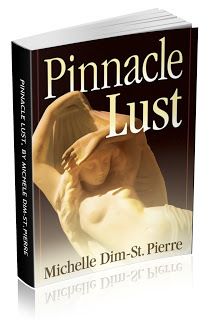 In a Tel-Aviv hospital during Operation Desert Storm, Sharon Lapidot, a beautiful young nurse, is having an affair with a married doctor. Sharon’s colorful and exciting life is ultimately destroyed by powerful and eroding mistakes. But her courage and wisdom lead her to an unregretful commitment. Vividly told, this compelling journey of love and lust, honor and betrayal, loss and redemption, will move you — and perhaps even change you.
In a Tel-Aviv hospital during Operation Desert Storm, Sharon Lapidot, a beautiful young nurse, is having an affair with a married doctor. Sharon’s colorful and exciting life is ultimately destroyed by powerful and eroding mistakes. But her courage and wisdom lead her to an unregretful commitment. Vividly told, this compelling journey of love and lust, honor and betrayal, loss and redemption, will move you — and perhaps even change you.Purchase LinksAuthor website AmazonBarnes and Noble AppleiBookstore Kobo
Social LinksWebpage Blog Facebook Twitter: @pinnaclelust
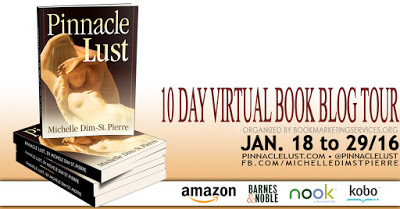
Published on January 17, 2016 20:18
January 13, 2016
WHAT THE EXPERTS SAY: Cate Beauman, Romance-Suspense Author
 Cate Beauman, Author
Cate Beauman, AuthorFINDING LYLA
10th Bodyguards of LA County SeriesRomance-suspense author Cate Beauman has just released FINDING LYLA, the tenth book in her best-selling Bodyguards of LA County series. As to the suspense part of her newest mystery, reviewers say "Talk about nail biting!" Beauman creates her stories from crime documentaries or articles. For FINDING LYLA she chose the career of her heroine as a Russian ballerina to fit into her interest in the Russian/US conflict.
When she’s not writing, Beauman spends time with her family and two St. Bernards at their home in North Carolina. She is currently busy working on the eleventh Bodyguard novel, Deceiving Bella.
Q: A key contributor to your romantic suspense Bodyguards of LA County is the profession of your heroine. How and why did you choose dancing for your heroine in FINDING LYLA?
Cate Beauman: Almost all of my ideas for a story come from crime documentaries or interesting articles I find in newspapers and magazines. Usually a topic catches my interest and something just sort of clicks. While I was searching for a new plot idea, I found myself interested in the ongoing Russia/US conflict. I thought the best way to tie the story together would be to make Lyla a ballerina since ballet is such a huge piece of Russia’s culture and an art treasured by so many countries around the world.
As I started building on my initial plot and got to know who I wanted Lyla to be, I knew making her a ballerina was a must. She’s all things that I believe a ballerina to be: strong, dedicated, determined, yet she’s kind and gentle. Collin is funny and easy-going, making this couple a perfect match. Q: Do you start to write your story with a mystery/plot and then create your hero and heroine to fit the plot? Or do you begin with a heroine and build the mystery around her?
Cate Beauman: It really depends. Each story is different. Because I write a series, it’s a given that some characters are already destined to have a story told about them and I must make the plot work around them, but when I’m starting fresh with a new hero/heroine, the plot typically evolves first and I make the characters fit the situations they will face in their journey among the pages.
Q: How do you select the settings for your story? For FINDING LYLA, did you choose locations where a dancer would perform? Did that influence the direction of the story?
Cate Beauman: For FINDING LYLA, the plot evolved before Lyla’s profession came about. Creating Lyla as a dancer certainly made sense. I had to do a lot of research to make this story come together—far more than typical. Learning about a new culture is always daunting, but I found myself fascinated.
Q: Each of your Bodyguard novels includes the first name of your heroine. How do you select the “verb” that accompanies the name? Is it a difficult process, or is it obvious, given the plot?
Cate Beauman: Creating the titles for the Bodyguards series keeps the novels cohesive. The verb must have something to do with the plot. Now that I’ve completed ten books and have moved on to tell the eleventh story in the series, it’s becoming a bit trickier to find the right word, but I’m determined to keep finding the perfect verb until the last bodyguard of Ethan Cooke Security has had their story told.
Q: What attracted you to write in the suspense/romance genre? Why do you choose to write in this genre?
Cate Beauman: I truly can’t imagine writing anything other than romantic suspense. Love and danger are such an adventurous mix, heightening both elements in each story. Love is more powerful when there’s something to lose. Danger is more potent when the hero/heroine’s wellbeing is at stake. Writing can be a tedious process. It’s much easier to sit down with my laptop everyday when I get to create action and sexual tension among the pages of my books.
About Cate Beauman
International bestselling author Cate Beauman is known for her full-length, action-packed romantic suspense series, The Bodyguards of L.A. County. Her novels have been nominated for the National Excellence in Romance Fiction Award, National Indie Excellence Award, Golden Quill Award, Writers Touch Award, and have been named Readers Favorite Five Star books. In 2015, JUSTICE FOR ABBY was selected as the Readers' Favorite International Book Award Gold Medalist, while SAVING SOPHIE took the Silver Medal. SAVING SOPHIE was also selected as the 2015 Readers Crown Award winner for Romantic Suspense and FALLING FOR SARAH received the silver medal for the 2014 Readers' Favorite Awards.
Cate makes her home in North Carolina with her husband, two boys, and their St. Bernards, Bear and Jack. Currently Cate is working on Deceiving Bella, the eleventh novel in her popular Bodyguardsseries.
For information on Cate's new releases, monthly giveaways, and upcoming events, sign up for her newsletter at: http://www.catebeauman.com/author/home.html#!newsletter-sign-up/c9td
Cate can be reached at www.catebeauman.comand www.facebook.com/catebeauman.
About FINDING LYLA
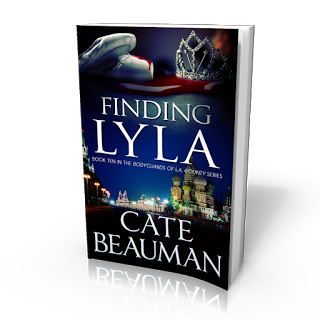 Principal Dancer Lyla Markovik-Avery is always on the go. Grueling practices and endless performances rule her busy days—and things are about to get more hectic. Russia is rolling out the red carpet for their beloved star, despite the string of violent terrorist attacks that have rocked the nation.
Principal Dancer Lyla Markovik-Avery is always on the go. Grueling practices and endless performances rule her busy days—and things are about to get more hectic. Russia is rolling out the red carpet for their beloved star, despite the string of violent terrorist attacks that have rocked the nation. Bodyguard Collin Michaels’ life is falling apart. His long-time relationship recently ended. He’s trying to start over, but that’s easier said than done. Luckily, Collin has a new assignment on the horizon: keeping a beautiful ballerina safe for the next three weeks.
Collin finds comfort in Lyla’s easy friendship, but that all changes after a night out on the town. Simple feelings become complicated—something Collin can’t afford, especially when tragedy strikes and Collin realizes Lyla’s caught in the middle of a dangerous plot for revenge.
Collin and Lyla are forced to flee. They need to reach the border before it’s too late, but the odds are stacked against them in a country that wants them dead. With time running out, Collin formulates a risky plan that might be their only chance of making it out alive.
Excerpt
Collin settled beneath the covers on his temporary bed as the dim glow of city lights radiated through the windows. He reached out, grabbing the remote off the coffee table he’d pushed off to the side, and flipped through several channels, stopping on SportsCenter. Scores and updates ticked by on the bottom of the screen, and he moved on, not all that interested in hockey stats.
He stopped again when the live footage from Saint Petersburg, Russia caught his attention. With the volume on mute, he searched for the closed caption button and sat up, reading the news report while the station switched back and forth between the newscaster and images of the police surrounding a trolleybus in the middle of a downtown street. The reporter spoke of a bomb discovered during the busy morning rush hour, mere miles from the plaza where dozens had been killed on New Year’s Eve. Luckily a citizen had been paying attention, and the explosive device had been deactivated, stopping another disaster.
Early reports were suggesting that the same rebel group responsible for the December thirty-first bombing, Chechen Freedom, had attempted to strike again. The news segment switched to snippets of the video released weeks ago, shortly after the slaughter of innocent civilians, where the masked men promised more violence in retaliation for The Federation killing one of their leaders. The man pointed at the camera, vowing to continue with his plans to destroy Russia until the regime relented and gave the Chechens back their country.
Sighing, Collin rubbed at his jaw. Why did he feel like he was walking into a losing situation? Everyday there was something new going on over there. If it wasn’t bomb threats and anti-American rallies, it was anti-Putin demonstrations outside the Kremlin walls, which often ended with tear gas and riot gear. And he and Lyla were only hours away from their late-afternoon flight.
The issues in Saint Petersburg weren’t necessarily one of his concerns. The city was a good nine hours away from their destination. It was the possibility of terrorist attacks in Moscow and Russia’s discord with the United States in general that had him on edge. The fact that Lyla was a dual citizen of two countries at odds had the potential to work for her…or very much against her. Only time would tell which way things were going to go, and they would be along for the ride while they waited to figure it out.
The Unofficial FINDING LYLA Soundtrack
“Music plays a HUGE part in my writing process. I typically listen to Pandora or YouTube while I create my stories and compile a collection of songs that I feel represent my characters or the situations they face as each novel unfolds. It’s a rare occasion that my creativity demands silence (And that’s a good thing. I’m a mother of two boys. Quiet doesn’t exist in my house.). I thought it would be fun to create a list of songs that ‘spoke’ to me while I wrote the Bodyguards of L.A. County series. You can listen to the “soundtrack” for each book on my website www.catebeauman.com “
The soundtrack, of sorts, for FINDING LYLA:· Today by Steve Moakler · Beautiful Things by Gungor · Teneferie Sea by Ed Sheeran · Shut Up and Dance by Walk The Moon · Anywhere but Here by Safety Suit · Never Gonna Be Alone by Nickelback · Nirvana by Sam Smith · Don’t Deserve You by Plumb · Unconditionally by Katy Perry · You’re in Love by Taylor Swift · Fight Song by Rachel Platton
Links
Purchase linksAmazon (Kindle)
Author LinksNewsletter Amazon Author Page Twitter: @CateBeaumanwebsiteFacebookGoodreads
Published on January 13, 2016 20:08
January 11, 2016
WHAT THE EXPERTS SAY: T.T. Michael, Author
 T.T. Michaels, Author
T.T. Michaels, AuthorFIRE WART.T. Michael wrote FIRE WAR, a political thriller he’s been mulling over for a long time, because of what’s been happening in the world today. He and his reviewers believe it’s a credible futuristic story because it could happen, given today’s terrorist attacks such as what occurred in Paris. He creates suspense by actually choosing real world situations.
In the following interview, Mr. Michael (wink, wink) shares a secret with us about his real identity. What’s most relevant is that he has written and published four detective mysteries under a different name. He is currently working on FIRE WAR II: Treason. When he’s not writing or working as a financial manager, he enjoys spending time with his wife and four children going to movies and sporting events—in particular, Chicago Whitesox and Dallas Cowboys games.
Q: When I read your biography, I was interested to find that you have been a financial manager at a car dealership for ten years. How or why did you come to write a futuristic dystopian thriller, FIRE WAR?
T.T. Michael: I have actually been a finance manager for 23 years but at my current place of employment for the last 12.
This is a story that I've had in my head for a very long time and with what's happening in the world today I just felt it was time to put it on paper. The book was published October 3rd and one of the stories had a terrorist attack in Paris. One month before the actual attack happened. It's kind of an eerie coincidence and when it happened I got a shiver up my spine.
Q: Reviewers praise FIRE WAR as a “Powerful and thought provoking futuristic thriller!” What makes it thought provoking? Did you intend to deliver a message or did you write it strictly as a thriller?
T.T. Michael: What makes FIRE WAR thought provoking is that this story could actually happen. A lot of the story is based off what could happen if the world keeps going on the path that it's currently on. In the news today you see Donald Trump talking about shutting down the borders. Building a fence. One of my plot points is that we do shut down the borders but to a bigger extreme. We actually join forces with Canada and Mexico to make one Super Country. The U.C.S.A. or United Continental States of America. We then shut down the border to that very large country.
I can't honestly say I intended on delivering a message per say but I can see the message that I put out there. When I started this story I had a completely different plot in mind but it was like the story took on a mind of its own. It grew into something bigger than I could've imagined.
Q: What do you believe are the key attributes of a thriller? How do you develop suspense?
T.T. Michael: The key attributes of a thriller are actually narrowed down to one thing in my eyes. That one thing is…Plausibility. If a reader can actually see what they're reading as something that could happen to them they get intrigued and want to see how the story comes out. I had one reader actually email me (I put my web page at the end of the book) and tell me that he put himself into every situation that my main character, Anthony Jackson, was put in. He told me how he would've reacted in each of those situations.
I develop suspense by using real world situations. Real world decisions would have to be made and sometimes readers will agree with Jackson's decisions and sometimes they'll scream "You idiot" to him. That's the real world because Jackson is very real in my mind and he's going to make mistakes along the way and there will be consequences. Those consequences can be right away or later down the road. Just like in real life.
Q: Reviewers discuss the plot and thriller part of FIRE WAR over and over. Would you say it is more plot-driven than character-driven? Did you conceive of the plot first and create your protagonist to fit into it?
T.T. Michael: I think FIRE WAR is both plot and character-driven. You can see the world around Sgt. Jackson and you can feel what he feels, see what he sees, and experience every part of his life as it happens. But, at the same time you can experience what's happening outside of his little world too. It's a very realistic book in that way. I conceived the plot many years ago but didn't know how I wanted to play it out. As I said earlier, the story you read today isn't the story I had in mind at all. It really took on a life of its own after the very first few pages were written. Originally I had more action/violence in mind but that story fizzled fast because it just stopped feeling "real" to me and I wanted a "real" story.
Q: How important is the concept of villain versus hero to tell your story? Do you need a villain to create a hero?
T.T. Michael: I don't want to give away too much of the story here but I can say that there's more than one "Villain" in FIRE WAR. You might even say there's more than one hero as well. Jackson is my main character but many people in the story can be labeled as "Hero" because of what they do.
Do you need villains to have heroes? Yes I think you do; otherwise you wouldn't need that hero.
Q: How do you create credibility in your futuristic world? Do you believe credibility is important to readers to enjoy FIRE WAR?
T.T. Michael: I created credibility in this story because it could truly happen. Terrorists could attack the U.S. again and cause all these dominoes to fall into place. This story was all too real to me in some senses because I actually pictured these things happening and how the people of the world would respond.
I truly believe credibility is very important to readers of this genre, especially.
Q: Did you base your protagonist on a real person or is he entirely fictional?
T.T. Michael: Gunnery Sergeant Anthony Jackson is all fiction but his thoughts and actions are based on how I would think and react to the situations I put him in.
Q: How helpful is humor to develop your characters or tell your story?
T.T. Michael: There are some humorous situations for Jackson and they are very important to who he is. He's human after all and even some bad situations that we are in can be humorous in real life. Every part of our lives is important to our story. Sad times, happy times, and even humorous times are a part of who we are as people and they are an important part of our entire lives so they are important in my story as well.
Q: What’s next? Will you write a sequel? What else have you written? Did you always want to become an author?
T.T. Michael: I am currently writing FIRE WAR II: Treason. It continues the story from the first FIRE WAR and this is where you will see Sgt. Jackson at his finest. Not that you didn't in the first one but you'll see a whole different side that you may or may not have figured out in FIRE WAR.
I've written 4 other books. They're all murder mysteries.
I can't say that I always wanted to be an author but I've always liked writing fiction. I remember when I was in the eighth grade and my teacher gave me an assignment to write a fictional story and it had to be 3 pages long minimum. While kids in my class turned in 3 page projects mine was over 30 pages long and I felt like I still wasn't done with it but it was due so I put an ending on it and turned it in. Of course I got an A.
Q: Tell us about T.T. Michael. What do you like to do when you’re not writing or working?
T.T. Michael: When I'm not writing or working there's very little time in my life but I truly just enjoy my wife and 4 kids. We love to go to movies and sporting events, i.e., Chicago Whitesox games and Dallas Cowboys games.
There is one thing about T.T. Michael that a lot people don't know and I am going to share it with you right now. This is the first time outside friends and family that this is told but here goes…T.T. Michael isn't my real name. It is in one sense. Michael is my middle name. My real name is Todd M. Thiede. After careful consideration I used a pseudonym for writing FIRE WAR because I polled some readers of my murder mysteries and they said that it would confuse some people that like my murder mysteries to pick up a book by me and not have it follow that genre. Some even said they would be mad and give a bad review because it wasn't what they would expect. One other thing I've done for the last few years that I've truly enjoyed is this…I give a scholarship at my high school to one deserving kid. It's the Todd M. Thiede creative writing scholarship and all the kid has to is write a story. Any story whether it be a true one or fiction. I just want to hear the student’s voice. In the last few years I've read some great stories and I even still mentor one of the recipients while they continue writing in college and maybe even beyond. I hope way beyond.
About T.T. Michael
Perhaps you wouldn't characterize the Finance Manager of your local automobile dealership as an Amazon best-selling author--until you get to know T.T. Michael. He has worked for the past decade at a Toyota Dealership in Illinois, but he is in the driver's seat as the writer of, Fire War, a political thriller set in the year 2076. See what happens when the United States, Canada, and Mexico all join forces to make one super country. See more about him and his book Fire War at www.ttmichael.com
About FIRE WAR
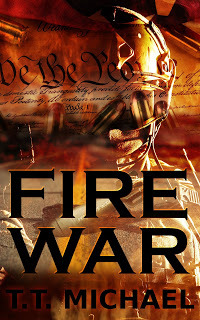 Late in the 21st century, the United Continental States of America (or UCSA), comprising the former USA, Canada and Mexico, is running smoothly: unemployment has been all but eradicated, terrorism is quashed in the country, and internal dissent diminishes by the day. Most people thank President Meyers for this. Many can no longer remember when there was last an election, but as long as he keeps the country safe from the terrorist group Hariq Jihad (‘Fire War’), this seems a small price to pay.
Late in the 21st century, the United Continental States of America (or UCSA), comprising the former USA, Canada and Mexico, is running smoothly: unemployment has been all but eradicated, terrorism is quashed in the country, and internal dissent diminishes by the day. Most people thank President Meyers for this. Many can no longer remember when there was last an election, but as long as he keeps the country safe from the terrorist group Hariq Jihad (‘Fire War’), this seems a small price to pay.Gunnery Sergeant Anthony Jackson is the model Marine: highly trained, absolutely efficient, and unquestioningly dedicated to his country. The only thing he can conceive of putting before his nation is his family, his wife Courtney and two daughters Maya and MacKenzie. Conscripted into the personal security detail of President Meyers, he begins to get glimpses that not everyone is as content with the current situation as he is, but attributes this to terrorist agitation and fringe lunacy. When his older daughter Maya begins to question the creeping erosion of personal liberties and the revoking of democratic rights, however, he begins to fear for her safety, as well as his own and that of his family. In a climate in which entire families disappear due to minor offenses, one can’t be too careful.
The tensions between liberty and safety, between family and country, will force Jackson to rethink all his beliefs, and lead to a collision with the system he has dedicated his life to serving.
FIRE WAR is a suspenseful, gripping and unnerving examination of the paradoxes of power, the price of liberty, and the dictates of conscience. The world you live in will never look the same again.
Links
Purchase Links Amazon Barnes and Noble
Book trailer link
Author LinksTwitter: @ttmichael9 Facebook Goodreads Website
ReviewsReaders’ FavoritesReaders' Favorites -2
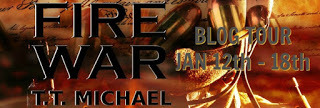
Published on January 11, 2016 19:52
December 16, 2015
WHAT THE EXPERTS SAY: April Bostic, Author
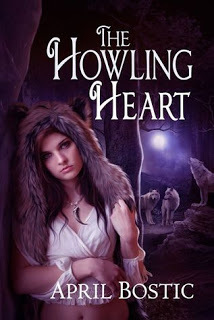 April Bostic says THE HOWLING HEART is primarily a romance—with a unique kind of werewolf. She enjoys werewolves and shapeshifters but intended for hers to be different and to support the romance in her story. She also believes that although werewolves are involved, it’s important that the main characters be relatable to the reader. One reviewer says, “This is the top of my list for paranormal.”
April Bostic says THE HOWLING HEART is primarily a romance—with a unique kind of werewolf. She enjoys werewolves and shapeshifters but intended for hers to be different and to support the romance in her story. She also believes that although werewolves are involved, it’s important that the main characters be relatable to the reader. One reviewer says, “This is the top of my list for paranormal.”THE HOWLING HEART is Bostic’s second novel, and she has also published several short stories—adult romances frequently with a supernatural twist. When she’s not writing, she’s dreaming about one of her stories being made into a film, playing computer games, or spending time with her family.
Q: Your book, THE HOWLING HEART, features werewolves. How did you become interested in writing about werewolves? Do you consider THE HOWLING HEART primarily a romance, thriller, or ????
April Bostic: I was inspired to write THE HOWLING HEART after watching the film “Blood and Chocolate” and the television series “Wolf Lake”. I’ve always enjoyed werewolves and shapeshifters, and these are two of my favorites because of how the werewolves were portrayed. I decided to try my own take on werewolf mythology when I wrote my book to see if I could create something unique that I’d never heard or seen before. I’m also a hopeless romantic, so there was no question in my mind that the book would primarily be a romance story.
Q: Fans and readers of shape-shifters appreciate your approach to “a different side of werewolves” and say it’s “not your typical werewolf story.” How is THE HOWLING HEART different from a typical book on werewolves? What makes it unique?
April Bostic: I think THE HOWLING HEART is unique, because my werewolves are actually wolves that can take human form instead of vice versa. They are born wolves and must sleep as wolves. They have to learn how to take human form when they’re young. They are not a wolf-human hybrid. Their origin is unique in that they’re descended from a wolf in 13th century Scandinavia that was blessed by Norse gods with the ability to take human form. The reason he was blessed is also unique, because it began from a long-term bond and love for a human. I even think their name---Varulv—is unusual. It’s the Danish and Swedish translation for ‘werewolf’.
Q: How do you create credibility for your werewolf characters? How do you engage readers to care about them? Are there any rules for making a paranormal story credible? Or perhaps it doesn’t matter?
April Bostic: I think it’s important to make the main character relatable to some readers. I also think it’s key to ground some of the story in reality. Authors of this genre ask their readers to suspend disbelief, but I think there needs to be some reality so it’s balanced. Otherwise, the story becomes too unbelievable and over the top. That’s when some readers have a lot of questions because things don’t make sense. I understand that some things in the paranormal universe can defy logic, but again, there should be a balance where the author explains how certain things are possible.
Q: Reviewers say they “couldn’t put it down!” What makes them want to keep turning the page?
April Bostic: It’s good a feeling to know I kept some readers engaged in the book. I hope they couldn’t put it down, because they enjoyed my writing style, and that I wrote enough action and suspense to keep them wondering “What’s going to happen next?”
Q: How helpful was the setting (a small village) to telling your story? Would it have been the same type of story if set in New York City, for example?
April Bostic:Most Varulv live in small, isolated communities because it’s safer for them and humans. There aren’t any packs living in big cities because it increases the risk of exposure and humans discovering their secret. Especially with pups who really have no self-control. It’s not a good idea to let them socialize with humans when they’re still learning to control their shifting. Varulv live in close-knit packs so they can protect one another and elude humans if the situation arises. I don’t think TH HOWLING HEART would’ve been as effective if Paige discovered a pack in her city. The city is too familiar for her. The setting had to put her out of her comfort zone to the point she feels helpless and has to rely on werewolves to survive.
Q: Did you write THE HOWLING HEART strictly to entertain, or did you embed a few messages in it?
April Bostic: I don’t think I intentionally embedded any messages, but if anyone can take something valuable from the story, then I think that’s wonderful. I wrote THE HOWLING HEAERT to share with others and entertain those who enjoy a good romance!
Q: Does the concept of “heroes vs villains” apply to THE HOWLING HEART? How would you define an effective villain?
April Bostic: I definitely think the conflict of heroes vs villains comes into play. With THE HOWLING HEART, Paige sees one person as a villain who turns out is really not. The person who is the true villain doesn’t reveal themselves until later. I think an effective villain is to not make them obvious from the beginning. Make the villain intriguing for the reader. Many characters in my book are not always who they seem to be. I also made sure not to fall into the cliché of the male always being the hero and rescuing the “damsel in distress”. There are moments when female characters display very brave and heroic characteristics.
Q: Would you recommend THE HOWLING HEART to those who do not typically read paranormal or space-shifter literature? Why or why not?
April Bostic: I would recommend my book to anyone who enjoys adult romances, because even without the paranormal element, the story is mainly a romance. The fact that there are werewolves and Norse gods doesn’t distract too much from the main theme of the story. I don’t think the story is about werewolves; it’s about two people who met as children and one of them fell in love and never stopped wishing for them to be reunited so they could be together forever.
Q: What’s next? Will you be writing more paranormal or romance novels?
April Bostic: I have an idea for another paranormal romance novel, but it’s in the early stages. I’ve also been considering a sequel to THE HOWLING HEART, because I feel there could be more story to tell my readers. I haven’t published a book in two years, and it’s difficult to get my creative juices flowing again. It takes a lot to motivate me to write, so I really have to find something to give me the push I need.
Q: Tell us about April Bostic. What do you like to do when you’re not writing?
April Bostic: I’m a big dreamer, and I find myself dream-casting my characters when I watch movies and television programs. My mother is the only other person who does this, because she’s read all my books. We like to choose different actors and actresses and talk about why they’d be a good fit to play a certain character. I think the main reason we do this is because we’d both love to see one of my stories get adapted for film one day. I’d say that’s probably my biggest dream. I think THE HOWLING HEART would make an amazing movie…with the right director of course! When I’m not writing, you’ll usually find me watching television, spending time with my family, or playing computer games. I’m a very laid back person.
About April Bostic
April Bostic is a New Jersey-based, Adult Romance author who enjoys unleashing her creativity and letting her imagination run wild. Her love of romance books inspired her to become not just a reader, but also a writer. In December 2008, she self-published her first novel, a contemporary romance with a supernatural twist entitled "A Rose to the Fallen".
Her first short story, "Right Here, Right Now", released in January 2012, is an erotic romance with a dash of S&M. The following year, she released two more short stories: a romantic urban fantasy inspired by the Greek myth of Eros and Psyche entitled "Eros, My Love", and a sexy romantic comedy entitled "Love Addiction".
After five years, she released her second novel, "The Howling Heart" in August 2013, a paranormal romance that delves into the mystical world of werewolves and Norse gods. To end her busiest year in publishing, April also released her fourth short story in December 2013, a historical paranormal romance entitled "A Dark Scandal".
About THE HOWLING HEART
Paige Donovan is an ambitious college graduate who aspires to reach the top of the corporate ladder. She’s climbing fast when given the promotion of a lifetime at a prestigious fashion magazine in New York City. Her bright future comes to an unexpected halt after news of her father’s death. She inherits his old cabin in the Colorado Rockies, and just when she thinks her luck couldn’t get any worse, she has a car accident in the mountains and awakens in the small, remote community of Black River.
Soon, she’s engulfed in the mystical world of Varulv---wolves descended from 13th century Scandinavia and blessed by Norse gods with the ability to appear human. Paige is desperate to return home, but never expects to fall for her rescuer, Riley Gray, a charming young werewolf from England who offers her an alternate future with his pack.
Now, she must choose between the career she’s always wanted and the love she’s always dreamed.
Links
AmazonBarnes and NobleBooksamillion
GOODREADS

Published on December 16, 2015 20:15
December 9, 2015
WHAT THE EXPERTS SAY: John Pearce, Author
 John Pearce, Author
John Pearce, AuthorLAST STOP: PARIS
TREASURE OF SAINT-LAZAREJohn Pearce’s recently-released LAST STOP: PARIS is an international suspense thriller and a sequel to his previous thriller, TREASURE OF SAINT-LAZARE. Set in Paris, LAST STOP: PARISintends to pull the reader into the city as the protagonist works to identify the black-market seller of anti-aircraft missiles.
A former journalist for the International Herald Tribune, Pearce knows Europe well and particularly Paris, where he lives off and on when not in Sarasota, FL. In addition to writing and traveling, Pearce writes a blog PartTimeParisian.com. He is currently working on a third novel that will combine the characters from the first two novels.
Q: Reviewers describe your newest release, LAST STOP: PARIS, as an international mystery, full of suspense and adventure. What are the elements that make it a mystery? Or would you describe it as more of an adventure than a mystery? A thriller? What makes it so?
John Pearce: I was amused that Kirkus, in its rather fulsome review, had trouble characterizing it. The first book was clearly a historical mystery (and in fact won a national “best-of” award for the category). In LAST STOP: PARIS, the mystery is the identity of the ultimate bad guy, who was responsible for the misery in Eddie Grant’s life but always seems just out of reach. The thriller part is very topical – the black-market sale of deadly anti-aircraft missiles known as manpads, which Eddie and his sidekicks must thwart to prevent the physical and financial carnage that would result if two loaded airliners were shot down at De Gaulle Airport.
Q: Why did you decide to write a sequel to TREASURE OF SAINT-LAZARE: A NOVEL OF PARIS? Did you leave some loose ends in TREASURE?
John Pearce: I intended to write one book, but after no more than two or three chapters I realized the story was bigger than that. It would have been a very large single volume.
Q: How helpful is Paris as a setting to create suspense, intrigue, and/or romance? Would these two stories be different if set in New York, London, or San Francisco?
John Pearce: I write about Paris because that’s the big city I know best, it’s where I live for part of each year, and I am a true fan. While I could set similar a story in another big city, it wouldn’t have the flavor of Paris. Eddie is a dual national, at home in both the French and American worlds. He distinguished himself as a military officer in Operation Desert Storm, and proudly wears the ribbons of both his Bronze Star and his Legion d’Honneur. His father, and all the Grant men before them, were also military officers, and his father was an American military spy behind German lines in France and elsewhere in the world (that’s another book).
Q: How did you create your protagonist, Eddie? Is he based on someone you knew? Would you describe him as a “hero?”
John Pearce: Like all my characters, Eddie is an amalgam of people I know and people who live only in my imagination. I’d be very surprised if there is a person alive who would see himself clearly in Eddie.
Eddie would not consider himself a hero, but his friends would. His goal is to be an ordinary man living an ordinary life, but outside forces make that impossible and he always rises to the occasion, with a little help from his friends.
Q: Is the concept of “hero vs villain” relevant to LAST STOP: PARIS? Do you define your villains clearly, or are they a mixture of good guy/bad guy?
John Pearce: The concept is very relevant. The villains are the type of people I consider most villainous – people willing to injure, even kill, simply for financial gain. The true villains in both my stories are genuinely evil, but be careful jumping to quick conclusions about any of them. There’s at least one major surprise on the horizon.
Q: How helpful was your career as a journalist to develop the plots and characters for your novels? Were you able to transfer the skills required for writing non-fiction articles on economics etc. to writing fiction?
John Pearce: Journalism taught me to gather information and organize it so it can be used to construct a story. Learning to write in the long form was a challenge, so much so that I shelved the novel for a year and dug deeply into the art and craft of writing novels. When I came back to it, the writing went much more smoothly.
Q: How do you create suspense? Again, what enabled you to write a thriller after a career as a journalist?
A: Suspense comes from putting people into difficult situations and watching how they dig out. Sometimes I have the resolution in mind before I begin to write, but it’s amazing how many scenes develop themselves organically only after I start to put words on paper.
Good journalists, good novelists and good short-story writers have one trait in common: they are good story-tellers. They can communicate the facts of an event or a situation in a way that readers can understand. The journalist of the type I was (just the facts, ma’am) has less freedom of writing style, while the truly literary novelist is free to create elegant phrases that flow smoothly across the page. As a novelist, I’m somewhere in between, I think.
Q: Did you write your PARIS novels strictly to entertain or do you sneak in a few key messages?
John Pearce: Entertainment is my main goal, but I also want my readers to feel like they’re physically present in my scenes. One of the most charming reviews I received for TREASURE said something like, “I’ve never been to Paris until now.” That reviewer understood what I was trying to do.
I didn’t set out to make any political or social points, but several reviewers thought I had. Of course, it’s the rare writer who can create a story free of his own experiences and viewpoints. But my stories aren’t tracts of any sort.
Q: What’s next?
John Pearce: I’m about 40% finished with a third novel, which will reunite the characters I assembled in the first two books, plus or minus. As I envision it now, it will have more of an espionage flavor to it.
After that, I want to write the story of Eddie’s father, Artie, a Harvard-trained lawyer who FDR lured out of the business world in the 30s to become a military spy (at a time when it wasn’t done for someone of his class to join the military). If it works the way my preliminary outline says it should, it will be a sweeping yarn.
Q: Tell us about John Pearce. What do you like to do when you’re not writing?
John Pearce: I read quite a bit. You can’t write novels unless you read them. I like music – my wife Jan and I live in Sarasota, an arts city on the West Coast of Florida, and we have a pretty full schedule of concerts through the winter this year. We travel, to Paris and elsewhere. This year we’ve been to Chattanooga and Knoxville for the Civil War history, plus New York and Washington. The opening chapter of the next book takes place in Miami, so we’ve gone there a couple of times, including a great long weekend at the Miami Book Fair.
And I look for interesting things to do. In Paris this year, for example, we were “discovered” by the casting director for a film the Paris Opera Ballet was producing and wound up playing the part of rather stereotypical American tourists, with speaking roles, no less. I wrote about the experience and linked to the film a few weeks ago on my blog, PartTimeParisian.com.
For someone who’s a fan of music and the arts, the best part of it was the opportunity to spend an entire day on the stage, in the rehearsal halls, and in the seats of the Opera Bastille, one of the great houses of the world.
#
About John Pearce
John Pearce is a part-time Parisian but lives quite happily most of the year in Sarasota, FL. He worked as a journalist in Washington and Europe, where he covered economics for the International Herald Tribune and edited a business magazine. After a business career in Sarasota, he spends his days working on his future books - The new one, LAST STOP: PARIS, is a 2015 project. It is a sequel to TREASURE OF SAINT-LAZARE.
For several months each year, he and his wife Jan live in Paris, walk its streets, and chase down interesting settings for future books and his blog, PartTimeParisian.com. They lived earlier in Frankfurt, Germany, which gave him valuable insights for several of the scenes in Last Stop: Paris.
Summary of LAST STOP: PARIS (from Kirkus )
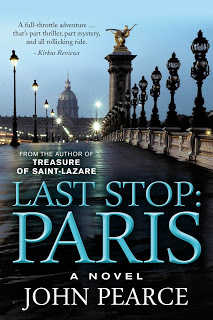 When readers last saw Eddie Grant in Treasure of Saint-Lazare (2012), he was hot on the trail of Nazi war loot in the company of his on-again, off-again lover, Jen. As readers return to Eddie’s shadowy world of undercover deals and thugs in the employ of crime bosses, they find a quieter, more mature Eddie, now married to Aurélie, a scholar of some note, and living in pleasant domestic bliss. Onto this romantic scene come several of Eddie’s friends, who alert him to suspicious activity within his social circle, involving a man with criminal intentions and an interest in gold. Shortly afterward, a mysterious murder implicates another character from Eddie’s past. As he looks into the matter, Aurélie soon finds herself in danger; at the same time, Jen reappears in Eddie’s life, and he’s simultaneously drawn to her and eager to avoid falling into bed with her again. Soon, he and his comrades must track down another ring of criminals and protect themselves from fatal retribution. Although sequels often suffer by having less energy than first installments, Pearce’s second foray into Eddie’s world has no such trouble. The pacing races from chapter to chapter as characters become more fully fleshed-out—particularly those in Eddie’s ring of friends. Jen provides a nice foil as an engaging modern woman who can take care of herself. Pearce again accomplishes every thriller writer’s aim: creating characters that the readers can root for and a believable, fast-paced storyline. The climax and denouement bring the storylines together neatly, but fans will see that there may yet be room for another book in the series. An exhilarating journey that will satisfy the most avid thriller reader. -Kirkus ReviewsExtract from LAST STOP: PARIS (Ch. 8)
When readers last saw Eddie Grant in Treasure of Saint-Lazare (2012), he was hot on the trail of Nazi war loot in the company of his on-again, off-again lover, Jen. As readers return to Eddie’s shadowy world of undercover deals and thugs in the employ of crime bosses, they find a quieter, more mature Eddie, now married to Aurélie, a scholar of some note, and living in pleasant domestic bliss. Onto this romantic scene come several of Eddie’s friends, who alert him to suspicious activity within his social circle, involving a man with criminal intentions and an interest in gold. Shortly afterward, a mysterious murder implicates another character from Eddie’s past. As he looks into the matter, Aurélie soon finds herself in danger; at the same time, Jen reappears in Eddie’s life, and he’s simultaneously drawn to her and eager to avoid falling into bed with her again. Soon, he and his comrades must track down another ring of criminals and protect themselves from fatal retribution. Although sequels often suffer by having less energy than first installments, Pearce’s second foray into Eddie’s world has no such trouble. The pacing races from chapter to chapter as characters become more fully fleshed-out—particularly those in Eddie’s ring of friends. Jen provides a nice foil as an engaging modern woman who can take care of herself. Pearce again accomplishes every thriller writer’s aim: creating characters that the readers can root for and a believable, fast-paced storyline. The climax and denouement bring the storylines together neatly, but fans will see that there may yet be room for another book in the series. An exhilarating journey that will satisfy the most avid thriller reader. -Kirkus ReviewsExtract from LAST STOP: PARIS (Ch. 8)Aurélie ran for the métro, certain she could lose Max in the maze of tunnels that connected three subway lines. “Help me!” she called out, as loudly as she could. “He’s trying to kill me!” Heads turned, first toward her and then toward Max, who hesitated for only an instant. Two steps at a time, she ran down the stairs to the platform, only to see the red lights of a departing train recede down the tracks ahead. The sign above the platform told her the next wouldn’t arrive for two minutes. She calculated quickly that she could run the length of the platform to the complicated system of transfer tunnels that make up the station, but after twenty yards the heel of her left shoe broke. In the few seconds it took to remove both of them, Max caught her arm in a viselike grip. “End of the line, lady,” he gasped. He was panting hard from the run. As people arrived for the next train they started to gather around the curious sight. Most backed away when they saw the knife in Max’s hand — except for one shabbily dressed young man who had been asleep behind the row of chairs lining the station wall. Aurélie was strong and in better condition than Max was, from lifting weights and the long runs she and Eddie made frequently along the Seine, but she knew she could not beat him in a knife fight, so she played for time. She grabbed Max’s wrist with both hands and pushed the knife away while the young man moved in with his backpack. She flexed her toes and gripped the rubber buttons of the warning strip, pushing hard to keep Max off balance until she felt the cold wind that every arriving train pushes ahead of it, then heard the sound of brakes as the train entered the station. The sound rose an octave as the driver saw the fight and began a full panic stop. A second before the train passed, she planted her foot behind Max’s ankle and pushed him with the last of her strength. He dropped the knife so he could hold her with both hands, but it was too late — by then she had tipped him beyond the point of no return. She released her death grip on his right wrist and he tumbled headlong in front of the hundred-ton train. His anguished scream died abruptly as the first car rolled over him. The young man grabbed Aurélie tightly around the waist to pull her out of the way, but even with his help they bounced a dozen feet along the side of the slowing train. She turned to look at him. “You are a brave man. Thank you.” “I am a soldier, or at least I was. Where did you learn to fight like that?” She picked one of the blue plastic chairs lining the station wall and sat down. “It’s the second time I’ve been threatened by a man with a knife,” she said. “After the first I swore I’d never be the victim again, so I made my fiancé teach me. He was also a soldier.” “It worked. What did you say to that man just as you pushed him in front of the train?” “I told him to tell his friends in hell that I sent him.”
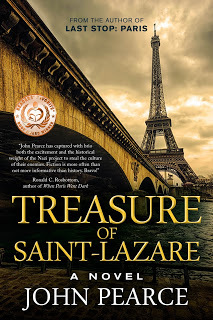 LinksPurchase Links
LinksPurchase LinksLAST STOP, PARISAmazon
TREASURE OF SAINT-LAZARE Amazon Kobo
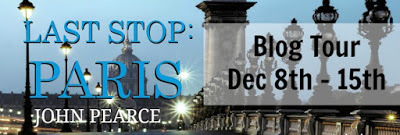
Published on December 09, 2015 19:23



